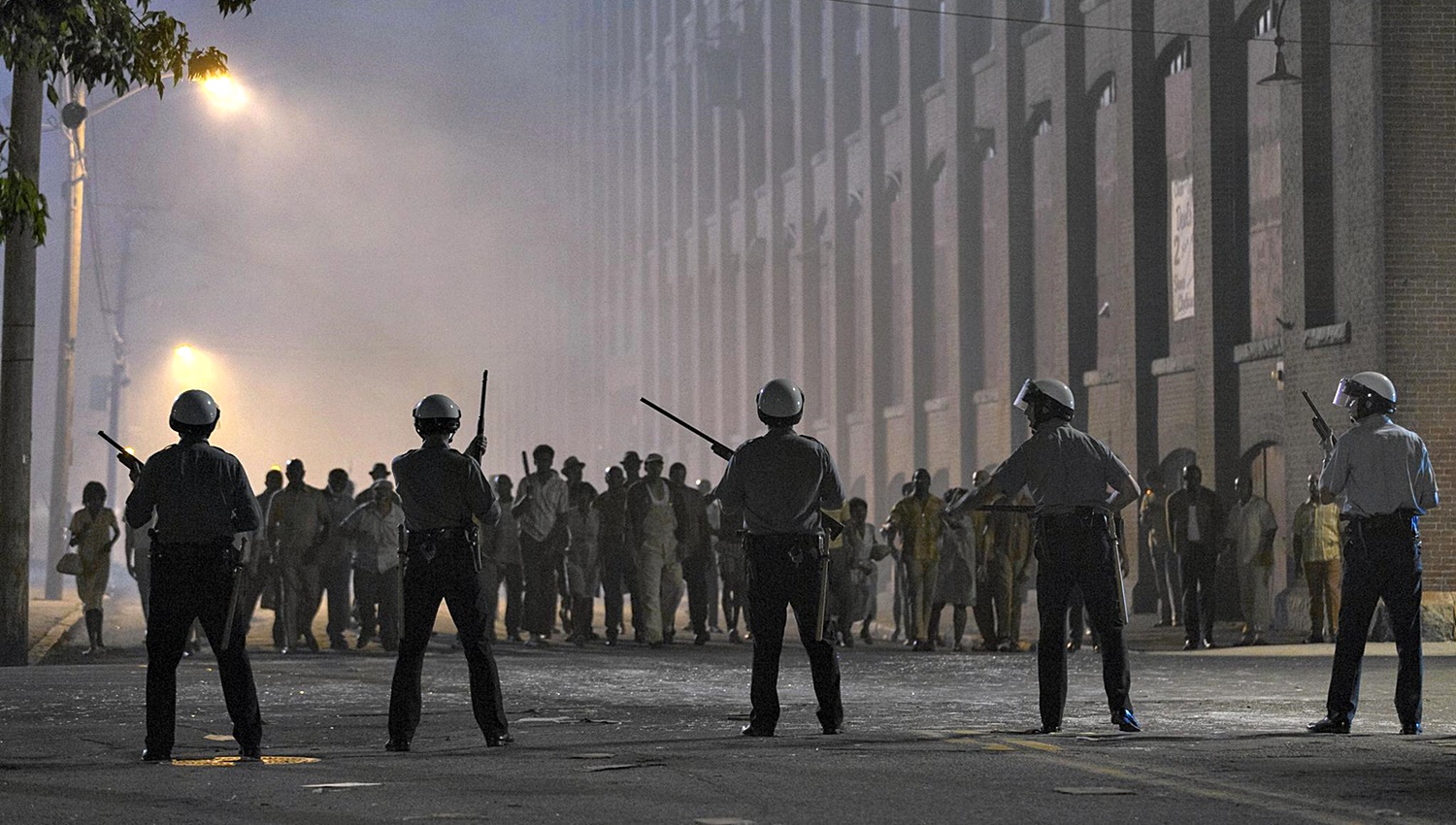Oscar winning director Kathryn Bigelow returns after “Zero Dark Thirty” with another pulse pounding true story, that feeds directly into today’s social relevancy. “Detroit” examines the 1967 riots that nearly destroyed a city, but the specific focus here is police brutality at a local area hotel that isn’t too far from today’s headlines. Bigelow and her Oscar winning screenwriter Mark Boals once again spend years on research and interviews before converting that documentary style approach into a feature film. Produced by Oscar darling Megan Ellison (“American Hustle”, “Foxcatcher”), “Detroit” has all the ingredients to be one of the years most discussed, important and divisive contenders.
“I need you to not mess up your own neighborhood,” says the local congressman. “Burn it down,” is the response to a request for peace. Following days of destruction, the national guard being called in to the United States fifth largest city, one racist, hot head local policeman Krauss (Poulter) takes control of a hotel where shots were fired. Inside young black men, plus two white girls, are violently interrogated for hours. The state police refuse to get involved in whatever is happening and many of the army service men watch and aid in the abuse. Two members of a touring band, among the accused, witness first-hand the racist brutality that covers the television and newspapers across the nation. Detroit is a city at war with instigators on both sides of the law.
Poulter gives the supporting performance that’s likely to capture most of the awards attention.
Despite the long running time (average for a Bigelow film) the suspense is sustained throughout the middle portion which takes place in the hotel annex. While history is already written on the story and trial, the specifics of this event haven’t been explored on the big screen. Bigelow, as she did with ‘Zero’, presents the facts, damaging on both sides, allowing whatever audience finding this film, to draw their own conclusions. Like “Ghosts of Mississippi” or “A Time to Kill”, “Detroit” fuels rage in the audience which feeds the suspense. Any film that can conjure an emotion is something special, “Detroit” suspends you there intentionally.
The performances are fractured into a stellar ensemble, everyone from Star Wars’ Boyega as the mediating security guard to “Game of Thrones” Murray as one of the white girls hanging out with Bigelow alum Anthony Mackie. However as usually is the case in these types of films, it’s the antagonist that truly stands out. Poulter (“The Revenant”, “We’re the Millers”) gives the supporting performance that’s likely to capture most of the awards attention. His performance, as the face of everything that’s wrong with the American police force, is the epitome of corruption. The script isn’t that far off from a horror movie, as the exhausting interrogation scene builds to an incomparable boiling point. There are a few scenes of kindness for balance, Motown performances for time stamping and the final act leads us into the courtroom.
Final Thought
Bigelow and partner Boals recreate a gripping and suspenseful dark period of American history.

